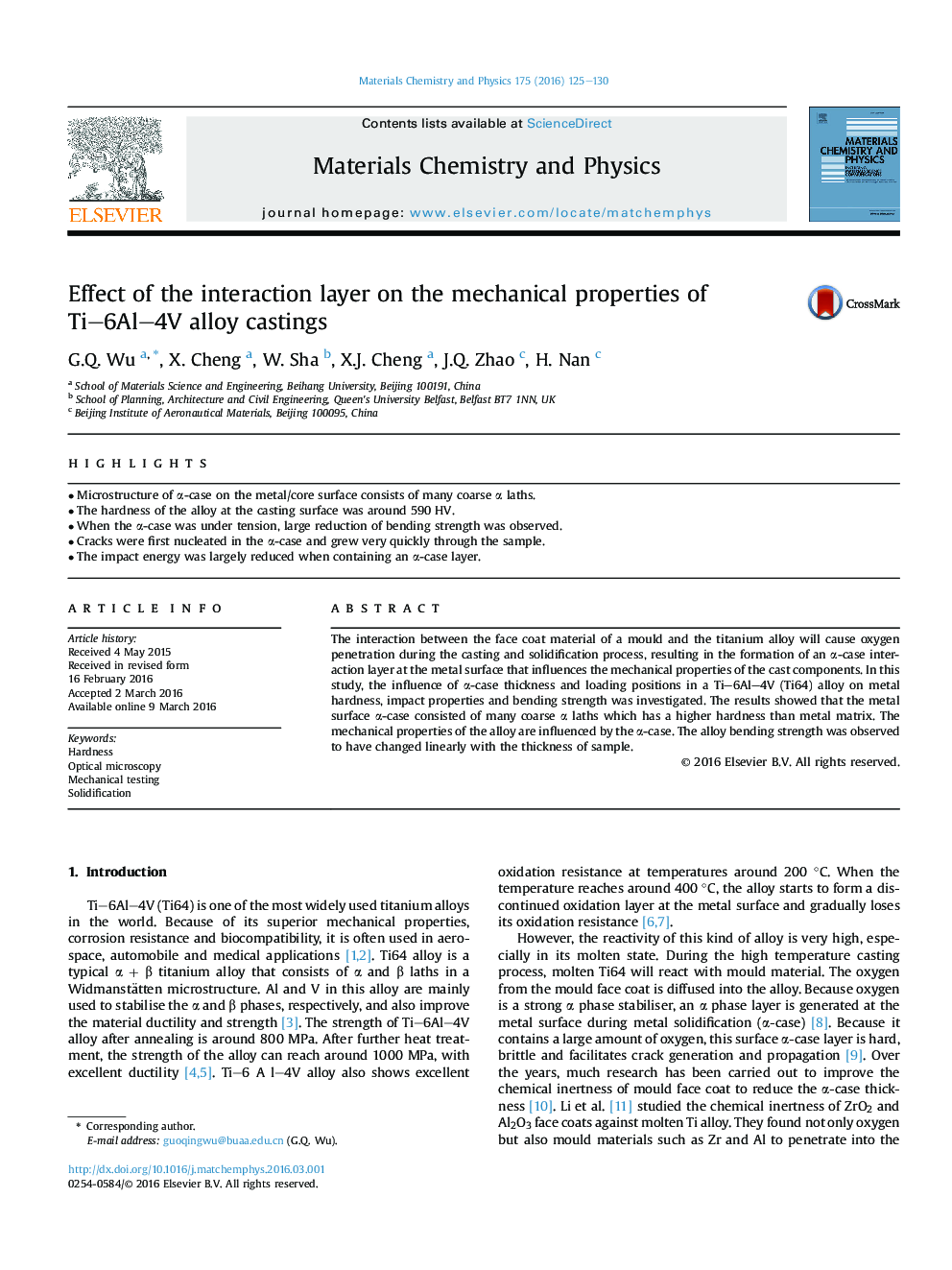| Article ID | Journal | Published Year | Pages | File Type |
|---|---|---|---|---|
| 1520948 | Materials Chemistry and Physics | 2016 | 6 Pages |
•Microstructure of α-case on the metal/core surface consists of many coarse α laths.•The hardness of the alloy at the casting surface was around 590 HV.•When the α-case was under tension, large reduction of bending strength was observed.•Cracks were first nucleated in the α-case and grew very quickly through the sample.•The impact energy was largely reduced when containing an α-case layer.
The interaction between the face coat material of a mould and the titanium alloy will cause oxygen penetration during the casting and solidification process, resulting in the formation of an α-case interaction layer at the metal surface that influences the mechanical properties of the cast components. In this study, the influence of α-case thickness and loading positions in a Ti–6Al–4V (Ti64) alloy on metal hardness, impact properties and bending strength was investigated. The results showed that the metal surface α-case consisted of many coarse α laths which has a higher hardness than metal matrix. The mechanical properties of the alloy are influenced by the α-case. The alloy bending strength was observed to have changed linearly with the thickness of sample.
